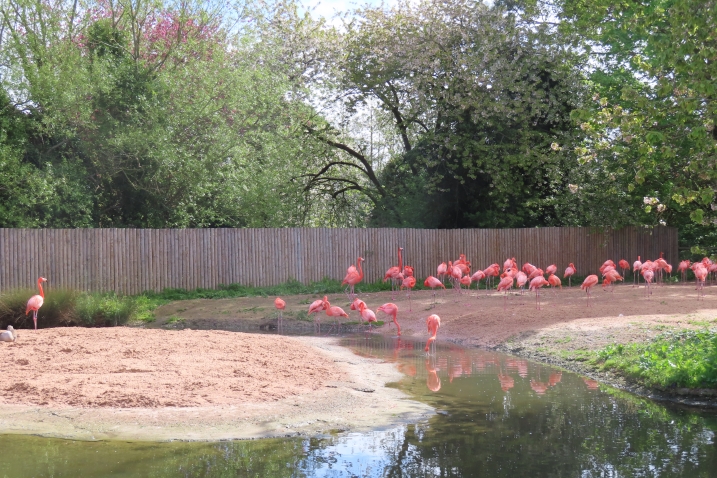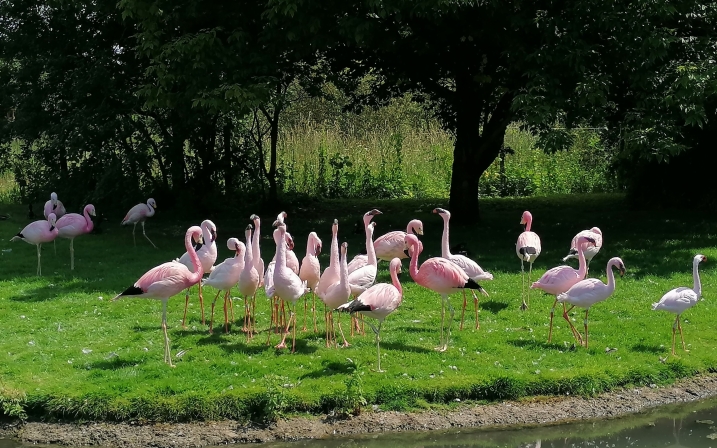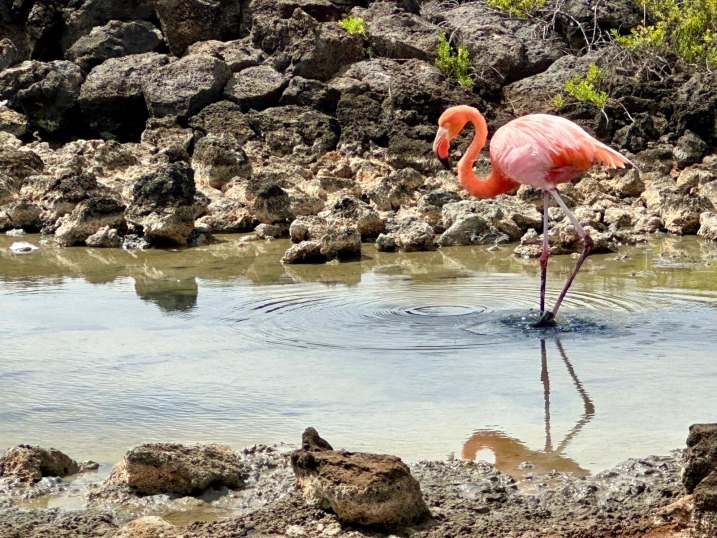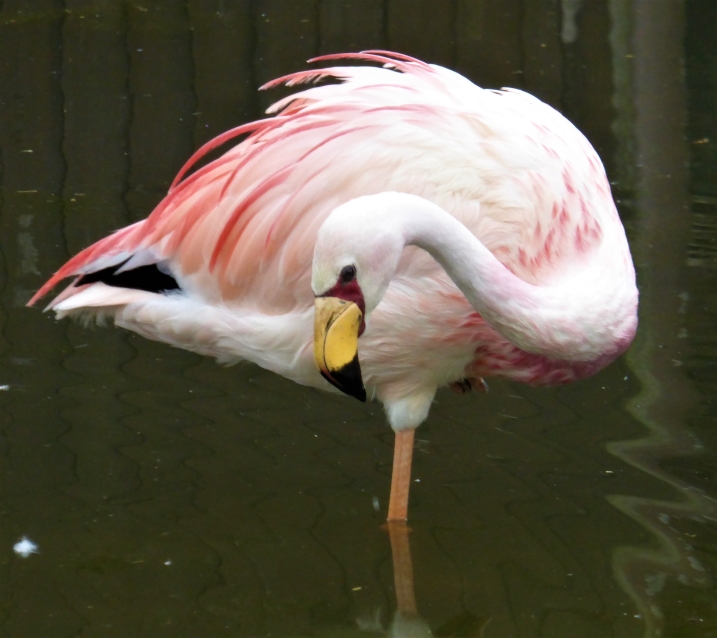In the pink! And very bright (part 2)
In my last post I mentioned that I had more to say on the subject of flamingo love over this Valentine's Day period. Well this post is less about love in a romantic sense, and more about love in a caring, nurturing, parenting sense. And I have Sparky to thank for this anecdote; it's not one that I can claim credit for...
A few week's back, just after Christmas, the young Caribbean flamingos that hatched in 2014 were brought into the relative calm of the Andean Flamingo House to see out the winter. Standard practice to bring Caribbean chicks out of the noise and hubbub of a rather large, rowdy flock, and into a more peaceful environment during more inclement weather.
Already resident in the Andean Flamingo Pen are two adult male Caribbean flamingos, one in his thirties and one in his fifities, that have been up to mischief and needed some convalescence away from their own flock until fully recovered. These two boys, bright red and towering over the other birds in this house, generally keep themselves to themselves. But since the arrival of the "Class of 2014" the two adult males have taken on a new role and seem to have decided to take all of these youngsters under their collective wings.
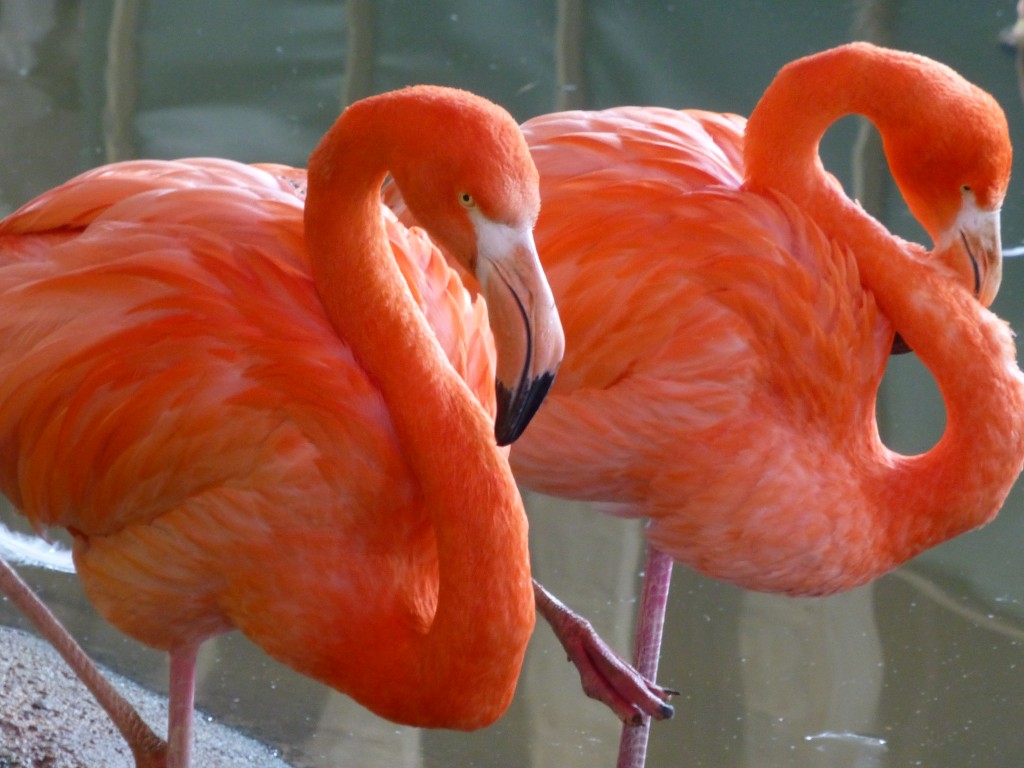
These two adults have now become almost inseparable from the small group of juveniles that share their enclosure, six Caribbeans and one Chileans, and they spend a great deal of their time shepherding the youngsters around. The young flamingos benefit from the wisdom and experience of the older birds, especially in a new environment that is home to an already established flock. Not that the Andeans are high-maintenance birds (although as we know, Mr James does have a temper!) but the familiarity of adults of their own kind may be comforting to these youngsters as they begin their own way in the world.
In wild flocks, flamingo chicks sometimes have to make gruelling treks, on foot, from the sites that they hatched in to suitable feeding and foraging areas. These throngs of walking chicks, travelling tens of miles, can contain several thousand young birds, and are watched over by a handful of adults. These adult "babysitters" ensure that the chicks are protected from danger and that they go in the right direction. It is probable that the behaviour of these two Slimbridge birds is simply this instinct, to protect and watch over a group of youngsters, that has resurfaced when placed in this enclosure in this circumstance.
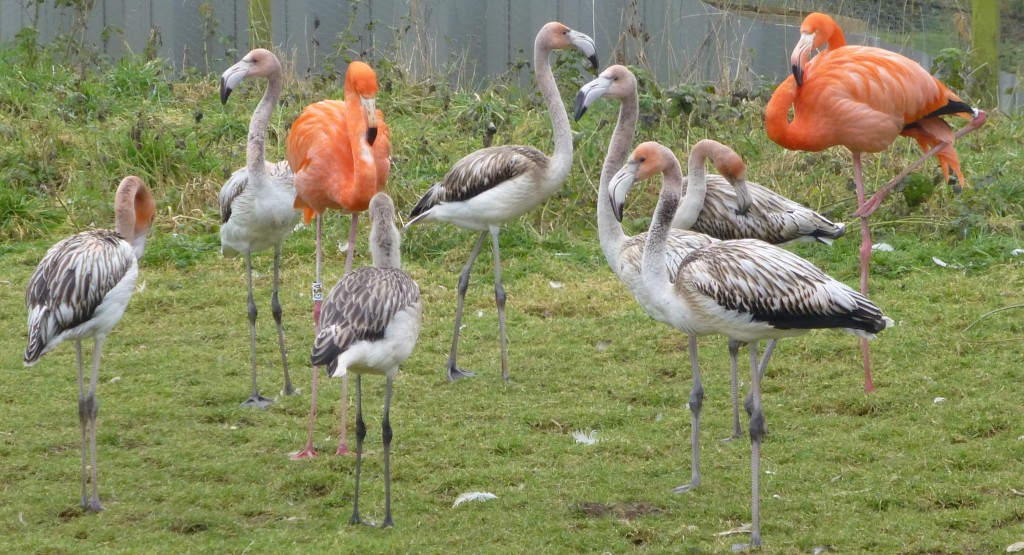
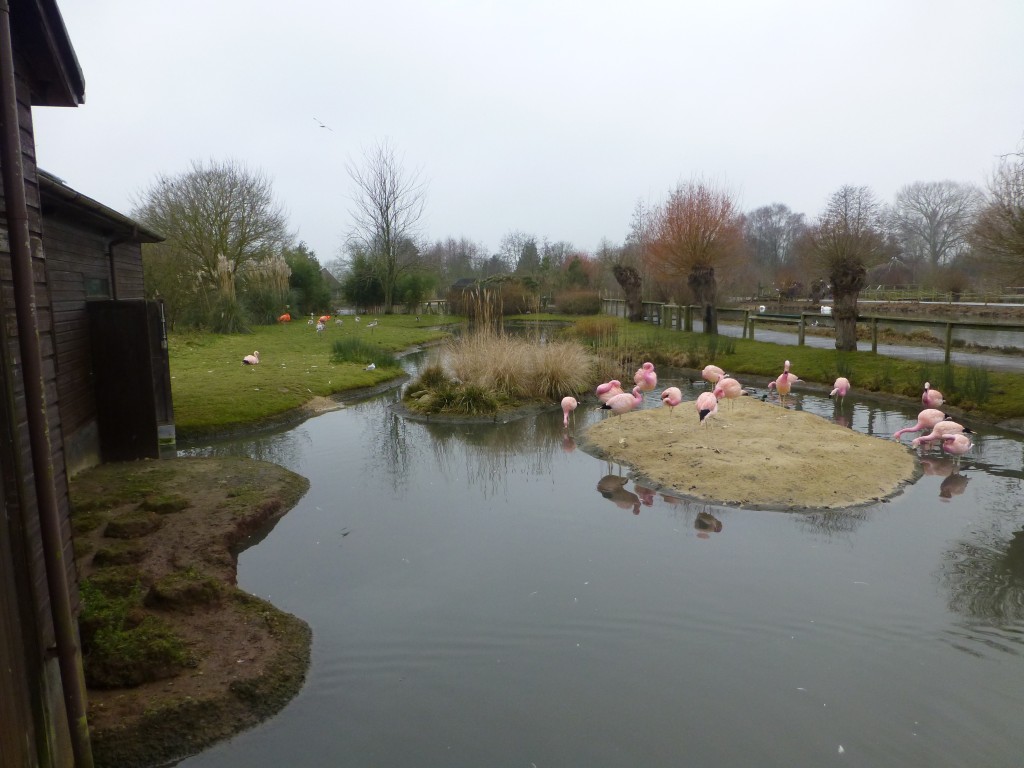
So call this what you like, foster parenting? Grand-parenting (one is certainly old enough!)? Flamingo "uncles"? It's easy to humanise our own feelings and emotions onto animals. Even though we have no idea of what is actually going on. Unless anyone out there can speak flamingo and can ask? It's still a lovely story, and we are sure that all the birds, old and new alike, are benefitting from this companionship.
